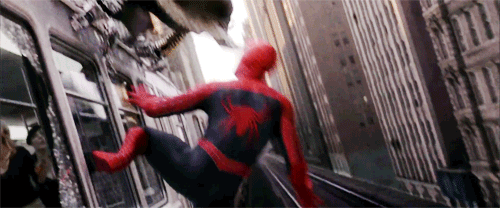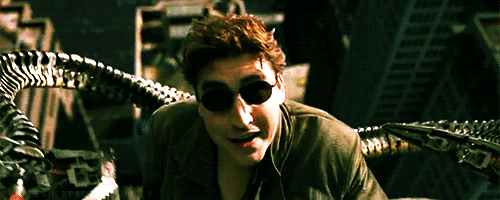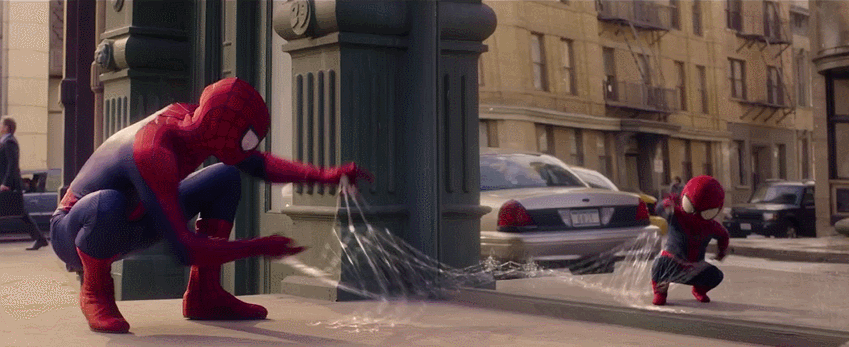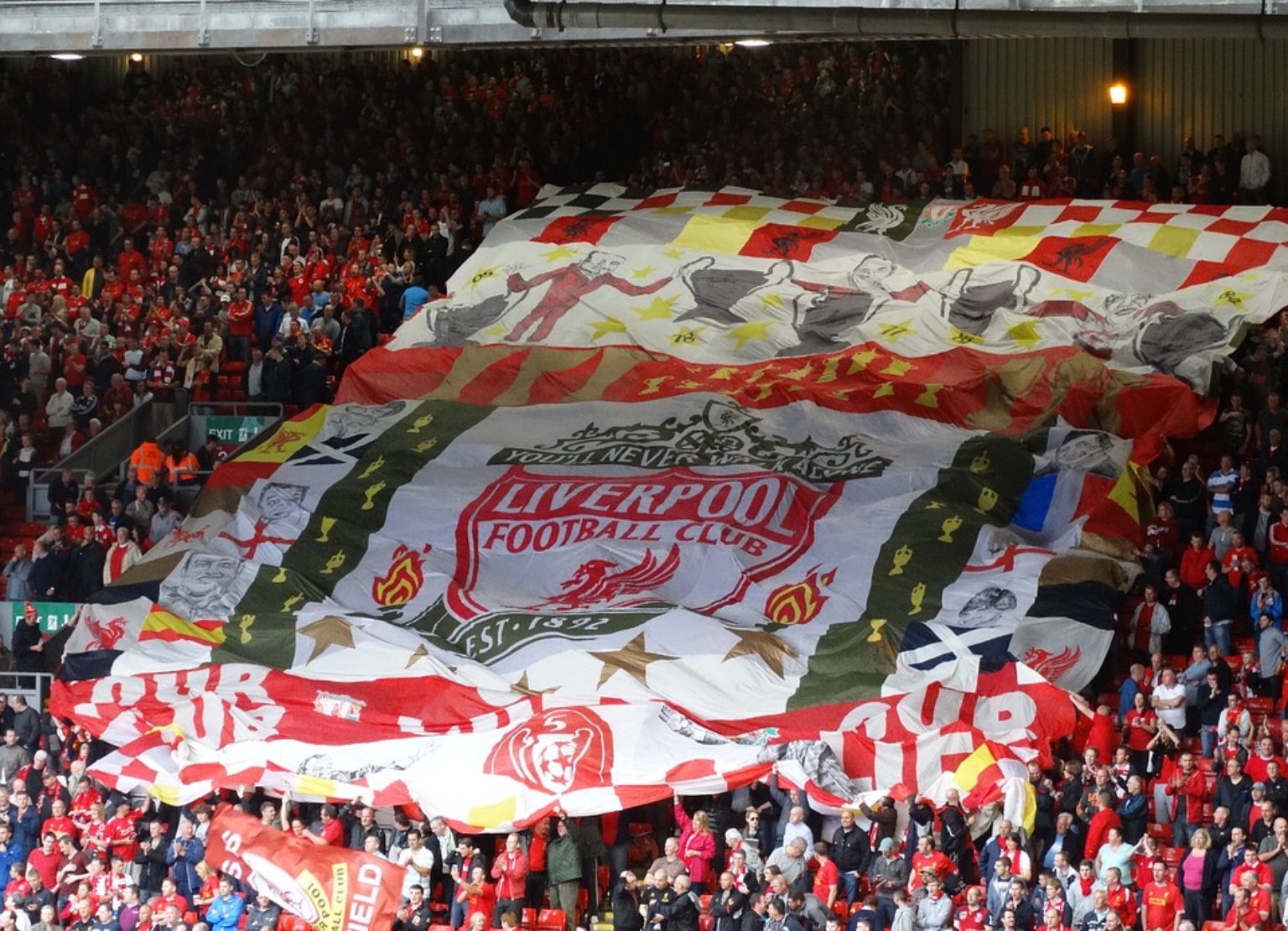There are a lot of really, really good superhero movies out there. The first two Superman movies are rightly considered classics, as is Burton’s original Batman and Chris Nolan’s The Dark Knight. But as good as those movies are, I wouldn’t consider any of them legitimately great films. They may be really, really good genre offerings, but they just lack a certain humanity that prevents them from being transcendently great motion pictures.
In that, I’d argue that there is only one truly great superhero movie – that being, a film that is intrinsically great beyond being just an entertaining comic book romp. And that movie is 2004’s Spider-Man 2.
The inherent greatness of the movie can be summed up very easily. To this day, it remains the only superhuman movie where the emphasis is on the human element instead of the super part. None of the Superman movies could exist as “straight” dramas. Take away the comic book tomfoolery from the Batman mythos and you’re left with nothing but the belabored miseries of a rich psychopath. Rip the superpowers away from any of The Avengers and you’re just left with a bunch of actors in goofy costumes trying to out-chew the scenery.
But if you took away ALL of the comic book elements from Spider-Man 2 – the costumes, the action scenes, the whole plot dynamic revolving around Doc Ock – you would still have a deeply moving and engrossing motion picture. That’s because, at heart, it’s not a movie about having superpowers, it’s a movie about the super-weaknesses we all share.
Spider-Man 2, ultimately, has more in common with Annie Hall than Ant-Man. The plot isn’t necessarily anchored around the cataclysmic action scenes; rather, it’s an almost neorealist look at what life is like for a poor-ass, lovelorn college student just trying to survive long enough to see what genuine adulthood resembles.

Spider-Man 2 and Eternal Sunshine of the Spotless Mind are essentially the same movie. The drama revolves around two people who aren’t sure if they should be in a state of togetherness or forget about each other altogether. Everything else that happens – whether it’s subplots about brain erasing procedures or a tentacle-armed scientist trying to blow up Manhattan with a plutonium bomb – are merely secondary considerations.
The more I think about it, the more I feel that Spider-Man 2 is the greatest movie ever made about young adulthood. Yes, better than Amarcord, better than Almost Famous, yes, even better than The Graduate. With Peter Parker, we have an atypical movie protagonist who is completely down on his luck. He lives in a crappy one-room broom closet apartment he can barely afford. His mother-equivalent is just as broke and about to lose her home. And he can’t focus on his schoolwork because he has to do brainless menial jobs to avoid being homeless. And the only thing keeping him from throwing in the towel is the extraordinarily unlikely hope that the girl he cares about more than anything in this world maybe – just maybe – will accept his love and return the affection and admiration.
THAT is what Spider-Man 2 is about. Not the web-slinging. Not the mid-air battles. Not even the iconic train sequence, which apparently, is such a fantastic metaphor for self-sacrifice that at least half a dozen subsequent superhero movies have completely ripped it off in a fruitless attempt to achieve the same dramatic effect.
The comic booky elements, however, do make for some great “magical realism” metaphors. By giving up his life as a crimefighter – which, by proxy, means refusing to use his superpowers at all – what is Peter Parker really giving up? Is he abandoning his occupational dreams in order to secure a normal life for himself and Mary Jane and Aunt May? Is he trading in a life of adventure and wonder-seeking for one steeped in safety and security? And by choosing the road more traveled, what sort of positive impact on society is he foregoing?

There’s a tremendous scene in the film where Peter Parker walks by a blazing inferno and overhears a fire captain talking about all of the victims who didn’t make it out alive. Without saying a single word, Parker’s facial expression tells the audience everything they need to know: that the world needs his gifts, and if that means sacrificing his own wants and desires, so be it.
The greater good is greater than the individual, and it just has to be. If Parker wasn’t a hero, he would be a villain by default for simply squandering his abilities and refusing to help the oh-so vulnerable downtrodden.
That, naturally, segues to quite possibly the greatest monologue in any superhero movie ever, in which Aunt May explains EXACTLY what Spider-Man represents, when she talks about a young kid who idolizes old Web-Head:
“He knows a hero when he sees one. Too few characters out there, flying around like that, saving old girls like me. And Lord knows, kids like Henry need a hero. Courageous, self-sacrificing people. Setting examples for all of us. Everybody loves a hero. People line up for them, cheer them, scream their names. And years later, they’ll tell how they stood in the rain for hours just to get a glimpse of the one who taught them how to hold on a second longer. I believe there’s a hero in all of us, that keeps us honest, gives us strength, makes us noble and finally allows us to die with pride, even though sometimes, we have to be steady and give up the thing we want the most. Even our dreams.”
No superhero film before or after Spider-Man 2 has philosophically hit the nail on the head like that. Every superhero movie can show us something super, but Spider-Man 2 is the only one that’s ever put the emphasis on the hero aspect. Wonder Woman and Watchmen and Winter Soldier and Suicide Squad and Logan were all revenge fantasies and Apocalypse porn. But Spider-Man 2 showed us what it TRULY meant to be a hero, as epitomized by its brilliant finale in which the VILLAIN of the film has a sudden change of heart and sacrifices himself for the very greater good Spider-Man thought about abandoning.

To this day, Spider-Man 2 is the only superhero film that’s carried a truly redemptive message about what it means to be human, that had the good-heartedness to let audiences go home thinking that people can change for the better. Compare that to the downright nihilistic dualism of Batman v. Superman, Guardians of the Galaxy, and especially Wonder Woman, which all posit that “evil” is an unkillable facet of the human condition that can’t be reformed, only violently pummeled into a brief retreat.
Spider-Man 2 is a movie about many things. It’s about growing up. It’s about realizing one’s social purpose. It’s about the love one man has for his mother (figure) and it’s a story about the dizzying highs and crushing lows of young romance. One could even read the Doctor Octopus subplot as a metaphor for Peter’s attempts to save a self-destructive friend.
But the very last thing Sam Raimi’s unparalleled comic book adaptation is about, ultimately, is superpowers. And at the end of the day, that’s pretty much the reason why Spider-Man 2 is – and is likely to remain – the greatest superhero movie of all-time.






